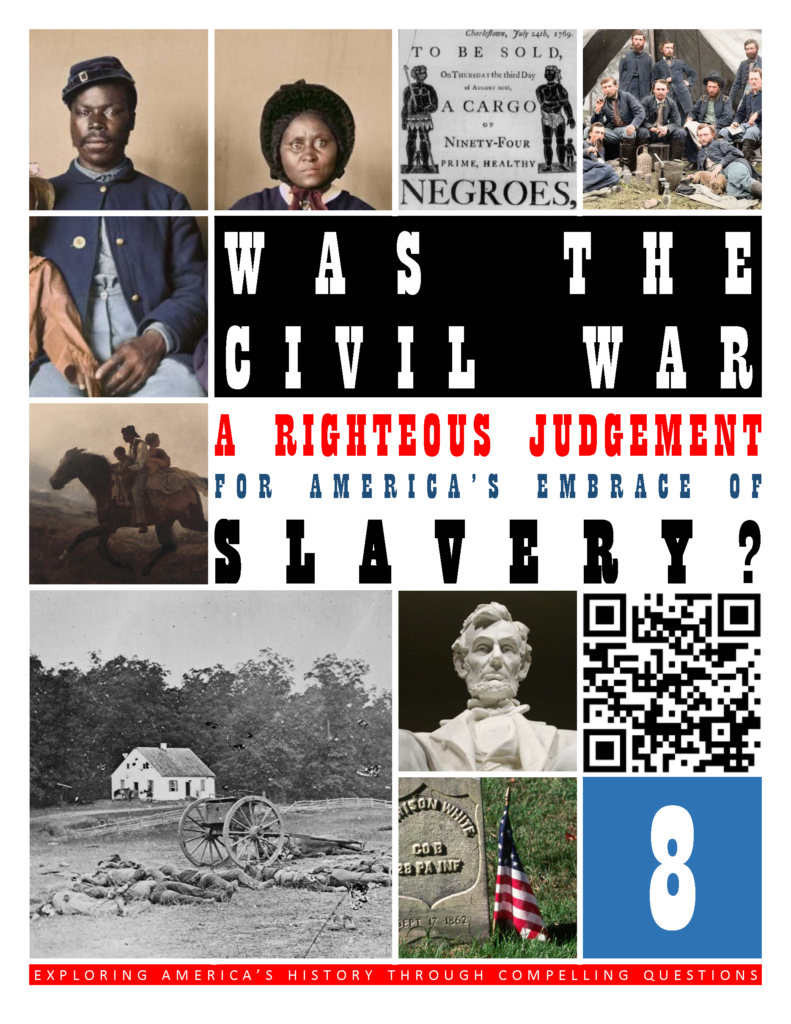
PRINT VERSION
By the time the Civil War started in 1860, slavery had been a part of American life for more than 200 years. There had never been a time during the existence of the United States, when slaves had not lived in the “Land of the Free.”
But slavery had not always been welcomed. The Founding Fathers had grappled with the question of slavery. Northerners had already in the 1770s and 1780s wanted to find ways to end slavery, but decided that compromising in order to declare independence and ratify the Constitution was more important. In effect, they made a deal with the Devil – trading the creation of the country for the continuation of slavery.
In the Antebellum Period, as the 1800s progressed, calls for the abolition of slavery increased and questions about the spread of slavery into new western territories divided the nation between the free states of the North and the slave states of the South. Although a series of political compromises preserved unity for a time, in 1860 all efforts failed, 11 southern states seceded and four years of civil war ensued.
In 1865 as the war was coming to a close, President Abraham Lincoln wondered if the death and destruction wrought by the war was God’s way of punishing Americans, that perhaps God would let the war continue “until every drop of blood drawn with the lash shall be paid by another drawn with the sword.”
And that is the question for you. Did America deserve this war? Was slavery such a terrible sin that the only way to make things right was to pay with blood? Was the Civil War, in which more Americans died than any other in our nation’s history, as Lincoln called it, a righteous punishment for slavery?
CONTINUE READING